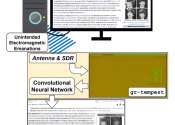China's top chipmaker reports Q2 plunge in profits
Leading Chinese chipmaker SMIC announced Thursday a sharp year-on-year drop in profits during the second quarter, as a domestic price war and technological rivalry between Beijing and Washington show no signs of abating.
Aug 8, 2024
0
1









